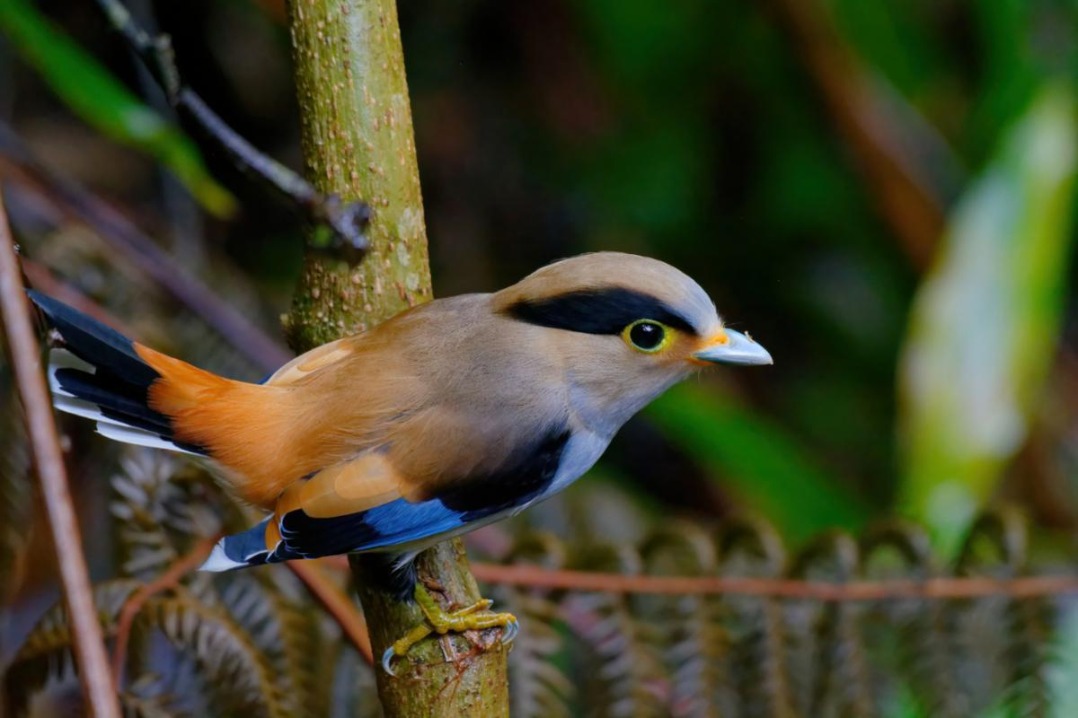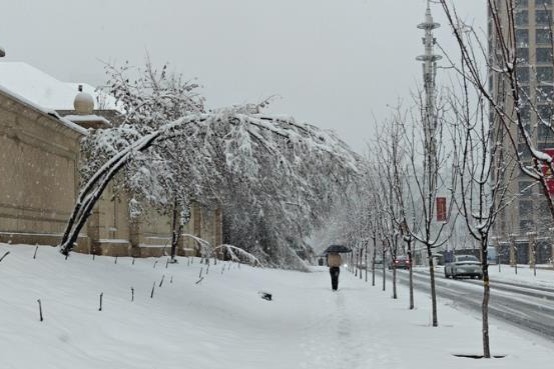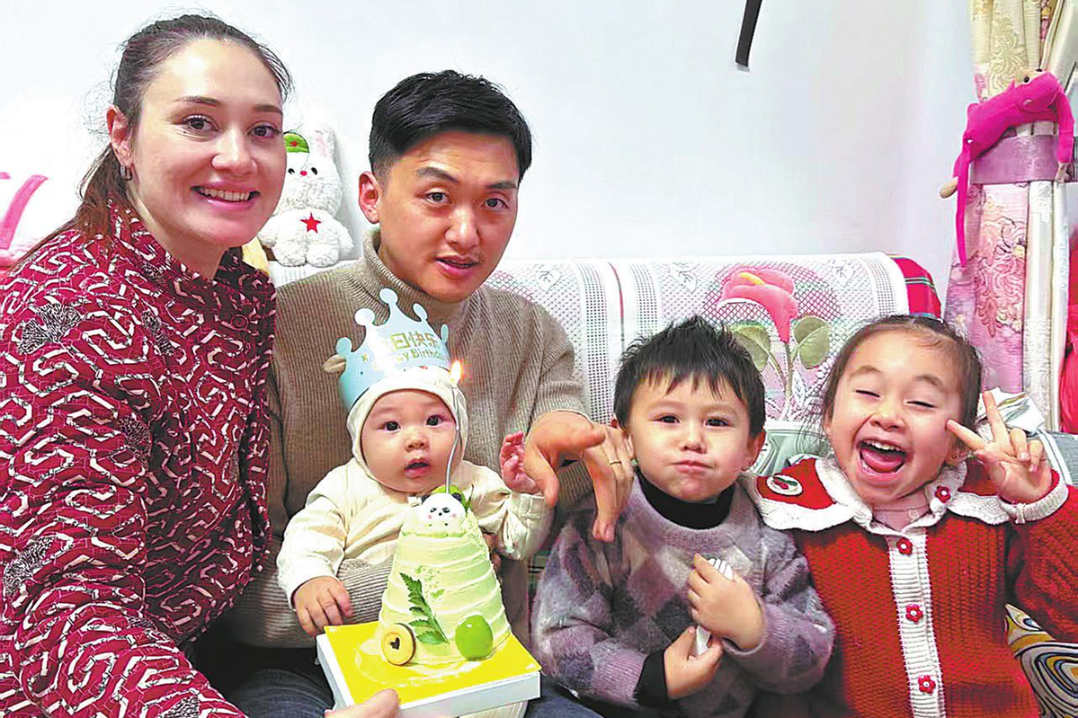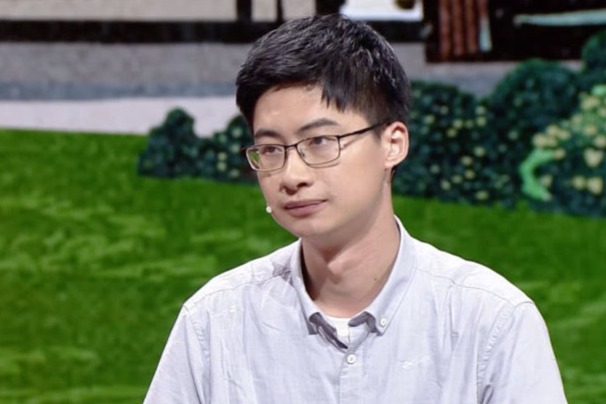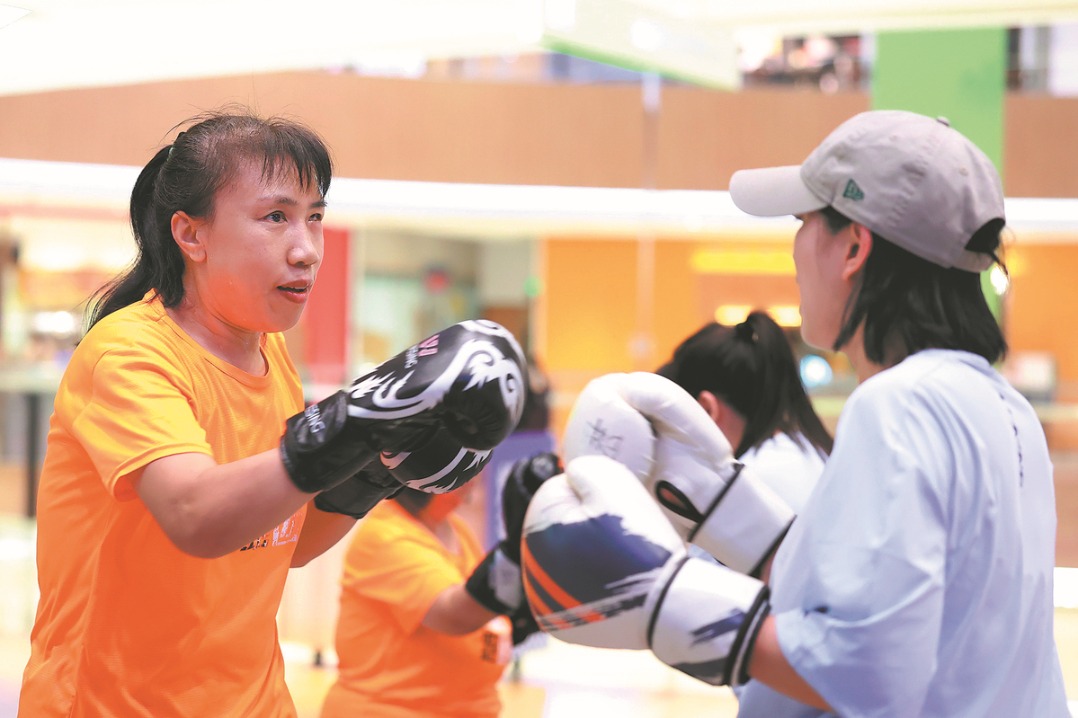Chongqing charity lifts poetry from the page for partially sighted


In mid-January, an exceptional and joyful gathering took place at a training center in Chongqing's Nan'an district. A Chinese literature class tailored for a group of partially sighted people was organized, offering them the chance to delve into the rich tapestry of Chinese studies.
Led by a volunteer teacher, the 21 participants were divided into three groups and dedicated two and a half hours to the study of a Chinese poem from the Song Dynasty (960-1279) themed around Spring Festival and traditional well-wishing Chinese couplets.
During the session, the teacher utilized an audio recording of a recitation to meticulously explain the literal meanings and deeper connotations of the poem to the participants, sentence by sentence.
To conclude the session, a fun group quiz was held, adding an exciting finale to the event.
The participants were members of the Chongqing branch of the national nonprofit charity Running in the Dark. It was their third in-person Chinese literature session.
Originating in Shanghai in 2016, Running in the Dark supports partially sighted runners and has expanded to include 27 branches nationwide, diversifying its activities to encompass sports such as hiking, cycling and swimming. "Ours is the first branch in the country to offer Chinese literature classes for the community," said Lu Wei, founder of the Chongqing branch.
Established in October 2022, the Chongqing branch has over 200 partially sighted members and a volunteer base of more than 400 individuals from diverse backgrounds.
"Like everyone else, they aspire to gain cultural knowledge and insight, and they are eager to learn," Lu said.
Five months ago, he initiated the class to combine cultural learning with physical activities.
"I hope to enhance their understanding of thousands of years of Chinese history by having them learn traditional Chinese cultural treasures such as Tang (618-907) poetry and Song ci poems taught in elementary school."
To accommodate their diverse levels of cultural proficiency, the curriculum is structured into three tiers. For instance, those with lower literacy skills engage with books from grades one and two.
"I'm a blind person, but I am not illiterate," said Deng Xuemei, a 51-year-old member who won the most prizes in the class competition.
She said that within a span of three months, she managed to memorize over 40 ancient Chinese poems.
Immersed in her family's early exposure to ancient aesthetics, Deng cultivated a deep affection for these artistic elements. However, her life took a drastic turn when she lost her eyesight at the age of 15 due to a retinal detachment accident. Consequently, she discontinued her education and later transitioned into a career as a masseuse.
However, the majority of the branch members have much lower education levels, with some even being illiterate, as a consequence of their visual impairments, especially among those who lost their sight since childhood, according to Lu.
"I was born completely blind and have never attended school, and I struggle with a poor memory, making it challenging for me to understand poetry," said member Zhang Jun. "But with the teacher taking the time to explain each word patiently, I have put in a lot of effort to stay on track with others through self-study."
Zhang said one poem he deeply resonates with is A Short Song written by Cao Cao, a warlord and poet who lived between the second and third centuries.
He said that team leader Lu encourages them to recite this poem while running. With each line comprising four characters, the rhythmic recitation synchronizes with their breathing, offering a dual advantage of physical exercise and cultural enrichment.
"I study Chinese for around an hour daily, and our group study schedule is flexible. I believe in gradual progress," said Zhang. "Learning traditional Chinese culture boosts my wisdom in handling situations, making me more skilled at managing tasks."
According to the China Disabled Persons' Federation, by 2023, about 85.9 million people in China were living with disabilities, accounting for 6.3 percent of the population. The partially sighted population in China exceeded 17 million, accounting for 17 percent of the national disabled population and nearly 18 percent of the global partially sighted population, with nearly 700,000 to 1.4 million partially sighted children.

















